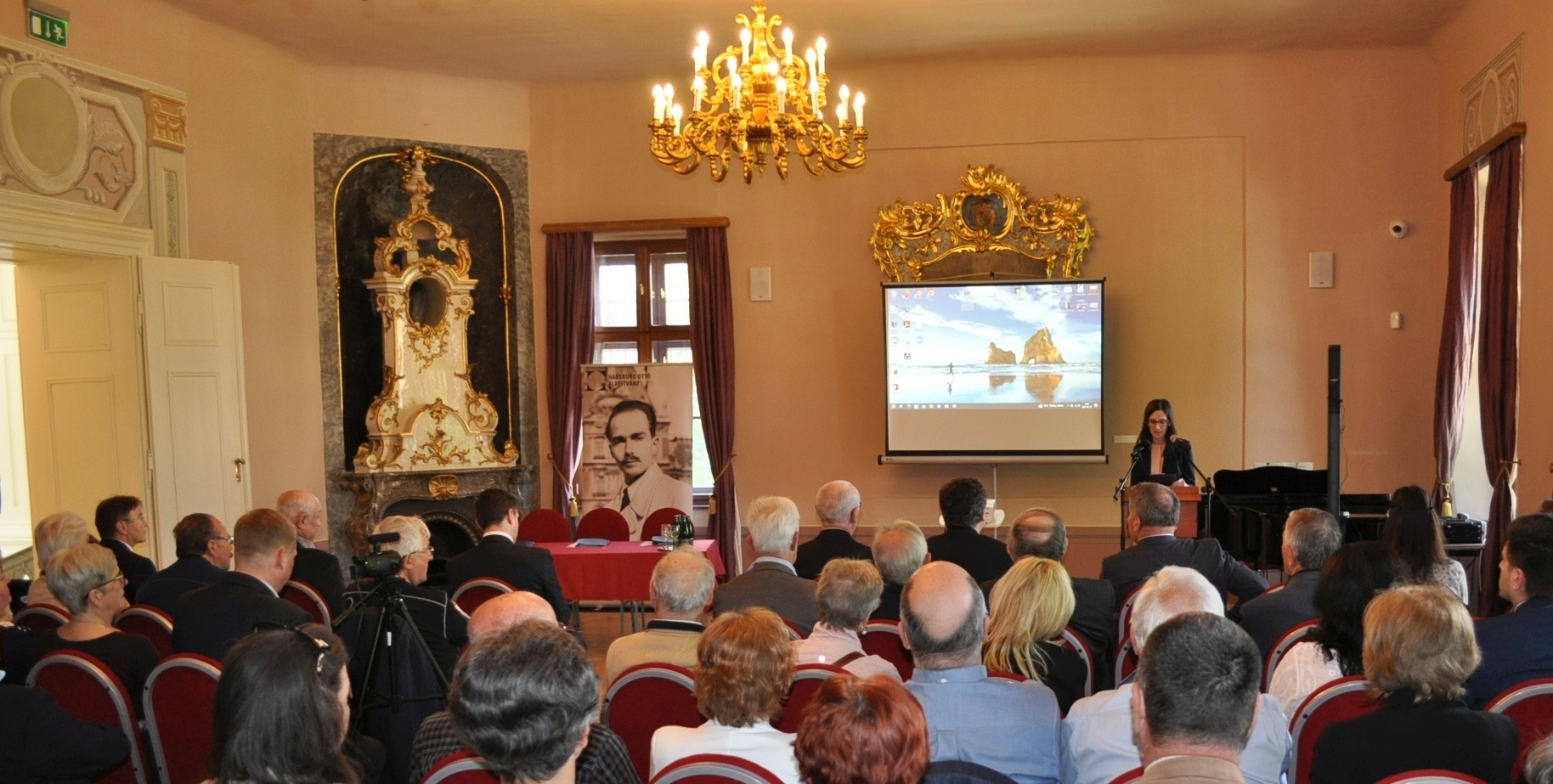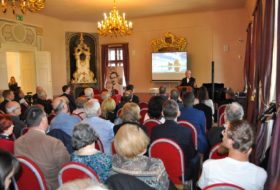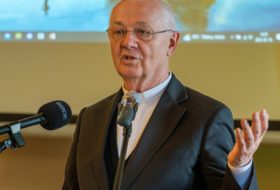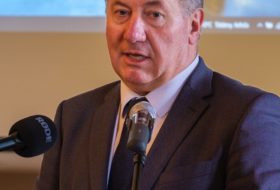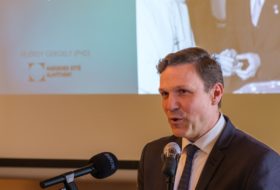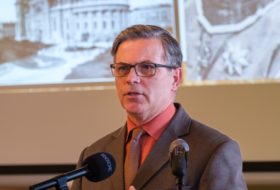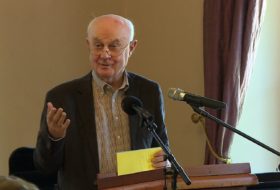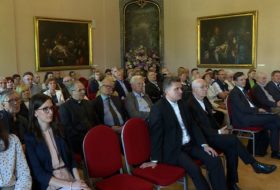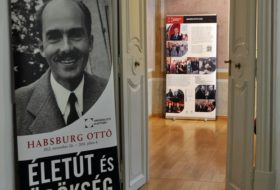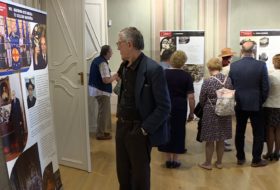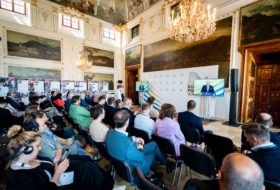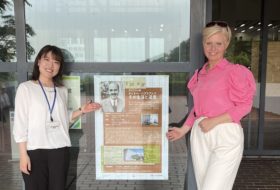The current stop of our travelling exhibition is unique in several aspects: among the places that have awarded our namesake the title of honorary citizen, we have so far visited settlements with a smaller population, but this time we were invited to the seat of a county, into the centre of an archdiocese. Otto von Habsburg and his wife, Princess Regina, returned several times to the city close to their hearts, and, as the Archduke often mentioned both in interviews and in his correspondence preserved in the holdings of our Foundation, his spouse particularly fell in love with Eger.
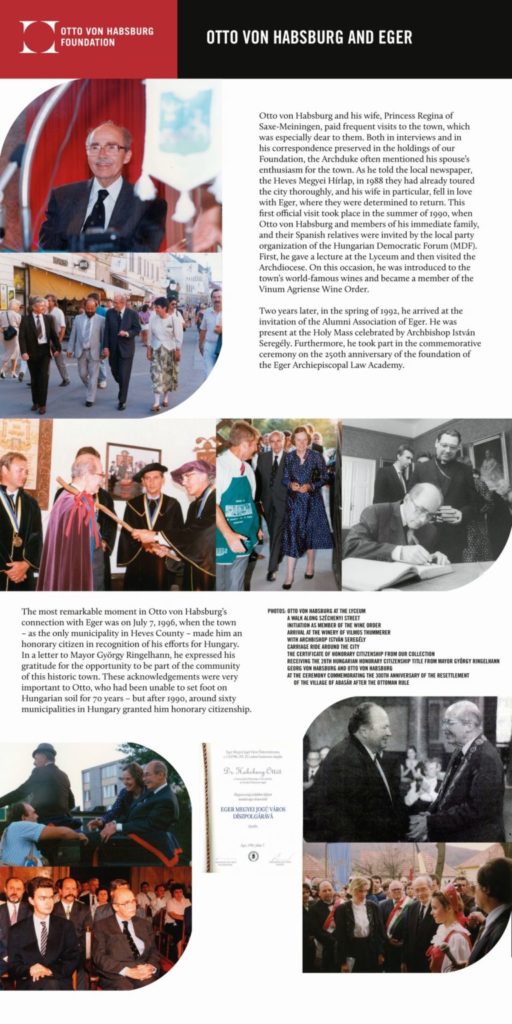 |
||
| Otto von Habsburg and Eger |
In his welcoming address, Archbishop Csaba Ternyák stressed the significance of our historical, Christian-Catholic roots, which nourished the ideals and spirit of Otto von Habsburg, who considered himself European as well as Hungarian until the end of his life. It should also be remembered that it was not by chance that the sanctity of life and Catholicism were so prominent in Otto von Habsburg’s life since the example of his father, Blessed Charles I, was always before him, the Archbishop recalled.
Gergely Prőhle, Director of our Foundation, said in his speech that we are all heirs of Otto von Habsburg’s legacy, which is significant both in Europe and in a global context. The life and work of the last Hungarian heir to the throne sought and offered a response to the seemingly inexorable modernisation and secularisation of the 20th century. His example proves that an active, constantly renewing Christian approach to life is not an impossible undertaking in our time either. Otto drew strength from his faith and never ceased to be grateful for it. He was convinced that a Christian Europe was not just a hypothetical fantasy but a tangible reality – even if a long and persistent struggle preceded its birth.
After the welcoming speeches, the vast audience was treated to three presentations. Gergely Fejérdy, Deputy Director of the Otto von Habsburg Foundation, highlighted events from his life with the title Episodes in the relationship between Otto von Habsburg and the Catholic Church. Béla Bartók, Associate Professor at the Eszterházy Károly Catholic University, spoke about local legitimacy in the period between the two world wars (The Otto-masses and the characteristics of legitimism in Eger between 1920 and 1944), while István Balás, former Director General of the Heves County Government Office, spoke about the years after the change of regime in his lecture entitled Recollections of Otto von Habsburg’s visits to Eger, enriched with his personal experiences.
Photos by Ferenc Nagy, Péter Nagy, Róbert Federics / Szent István Television
